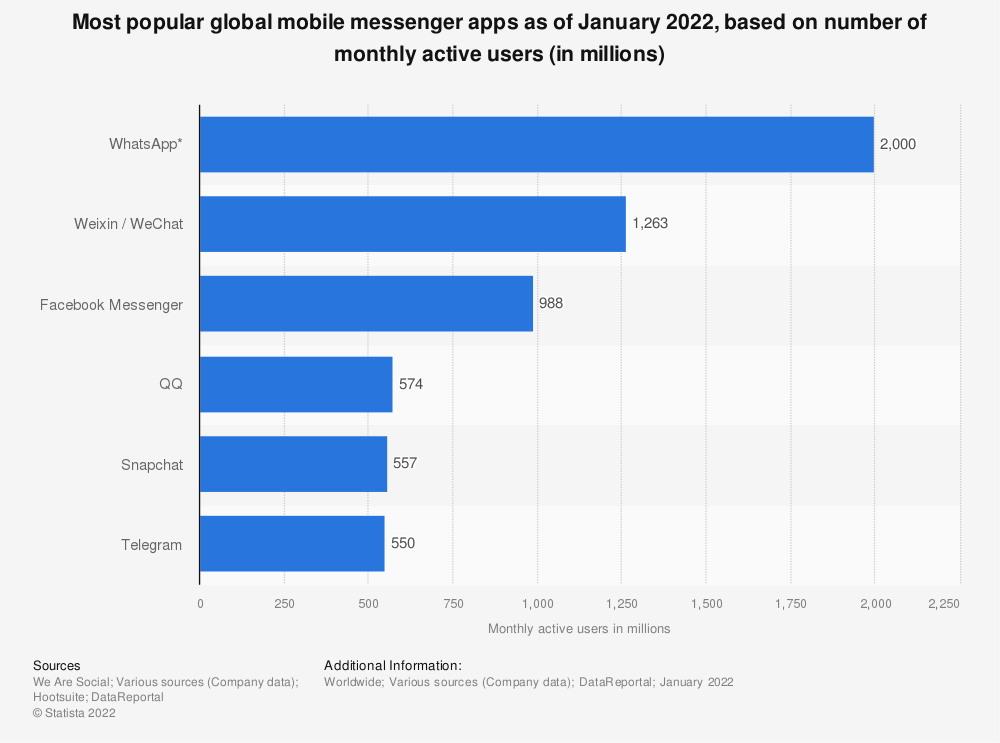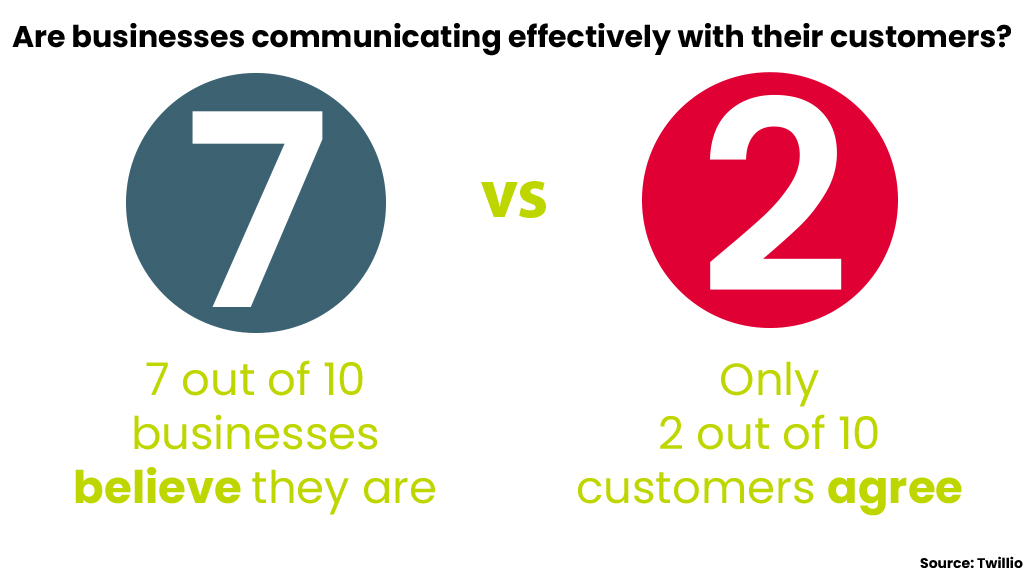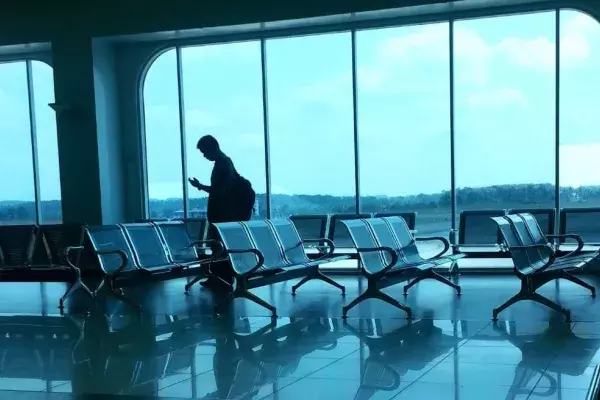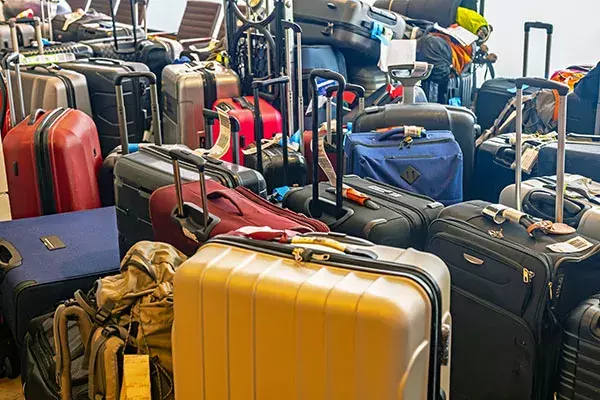09 September 2022 | Blog
8 reasons why airlines should add WhatsApp to their communications strategy
09 September 2022 | Blog
8 reasons why airlines should add WhatsApp to their communications strategy
Dealing with more disruption than ever before, airlines have a difficult job of communicating constant changes to their passengers every single day.
With customer service teams facing high operational costs from managing both inbound and outbound calls -not to mention, the damage to the brand caused by staggering call waiting times - airlines need to adapt to new ways of communicating with their customers.
With over 3 billion phone messaging app users globally in 2024, the demand for communication via messaging apps is rising fast. There are significant benefits of adopting a multi-channel communications strategy, including reduced costs of service, improved customer loyalty, and brand trust. What easier way to communicate customer updates than via an instant message that can be automated or personalised to every airline passenger?
The most widely used global instant messaging service is WhatsApp, and it is the latest communication channel that we have added to our platform.
Why should you add WhatsApp to your passenger communication strategy?
Read on to see 8 reasons why airlines should be adding WhatsApp to their communication strategy.
1) Its popularity is unprecedented
Since launching in 2009, WhatsApp has grown to 2 billion monthly active users, making it the most popular messaging app in the world.

The average WhatsApp user on Android spends 38 minutes per day on the app (Hootsuite). The sheer quantity of people around the world who use WhatsApp and the amount that they engage with it is proof of its value as part of an omnichannel communication strategy.
2) It puts you where your customers are
75% of adults want to communicate with businesses in the same way they do with friends and family (McKinsey). With over 100 billion messages sent each day, your notifications are unlikely to be missed or ignored.
Passengers expect to be able to contact you using WhatsApp, with 175 million people sending messages to business accounts on WhatsApp every day (as discussed by Will Cathcart – Head of WhatsApp on Twitter).
Not everyone may realize how common it is to WhatsApp message businesses in many countries. In fact, about 175 million people message a business account each day on WhatsApp and more want to do so.
— Will Cathcart (@wcathcart) January 8, 2021
3) Engagement is high, limitations are low
Unlike SMS notifications which are limited to 140 characters, WhatsApp messages can contain up to 4096 characters, so there’s no need to leave out any important information.
4) It’s what your customers want
60% of people would rather message a business than call a contact centre. An instant response will keep your passengers calm and connected, rather than leaving them to wait on hold until their call’s answered. Customers have faced call-waiting times of up to 12 hours this summer. And one of our customers reported inbound calls were 400% over forecast when cancellations were at their highest during the pandemic.
With any type of customer support, consumers these days don’t expect to have to wait for a response. 66% of consumers either prefer mobile messaging or consider it their second communication choice when compared to phone and email. For this reason, WhatsApp allows you to proactively send relevant, timely notifications before your passengers must go looking for the information they need.
5) It provides the ultimate customer service
7 in 10 businesses think they’re communicating effectively with their customers, but only 2 out of 10 customers agree.

For Barcelona-based insurance brand RACC, introducing WhatsApp resulted not only in a 20% decrease in inbound calls, but a 70% decrease in case-handling time, 9.7/10 customer satisfaction score, and 48% of its claims are now fully automated - a big win for both RACC and its customers.
6) It builds ROI and customer loyalty
WhatsApp Business is perfect for sending regular updates like flight status notifications.
To ensure a positive experience for your customers, we will work with you to get your message templates approved by WhatsApp which has strict criteria to prevent spam. This means customer trust will be higher when a customer receives a notification from you via WhatsApp where other channels may be more prone to spam.
7) Peace of mind with WhatsApp’s user opt-in requirements
Marketing messages over WhatsApp are restricted, and the primary focus is on sending operational notifications and reminders. However, one vital thing to note is that anyone you message on WhatsApp must have explicitly opted in to receiving notifications via this channel. It’s easy to collect this approval during the booking process. The customer’s opt-in will then be recorded on the PNR.
8) Privacy and security guaranteed
WhatsApp provides end-to-end encryption, which means no one apart from the sender and the receiver can read the messages sent. So, you and your customers can be assured the information won’t fall into the wrong hands.
Adding WhatsApp to your airline's communications strategy
With customers expecting immediate and accessible information, it is time for airlines and travel companies to make this hugely popular channel a part of their omni-channel strategy to reach their passengers.
Find out more about how to use WhatsApp to notify your passengers with timely, relevant and targeted messages here.




